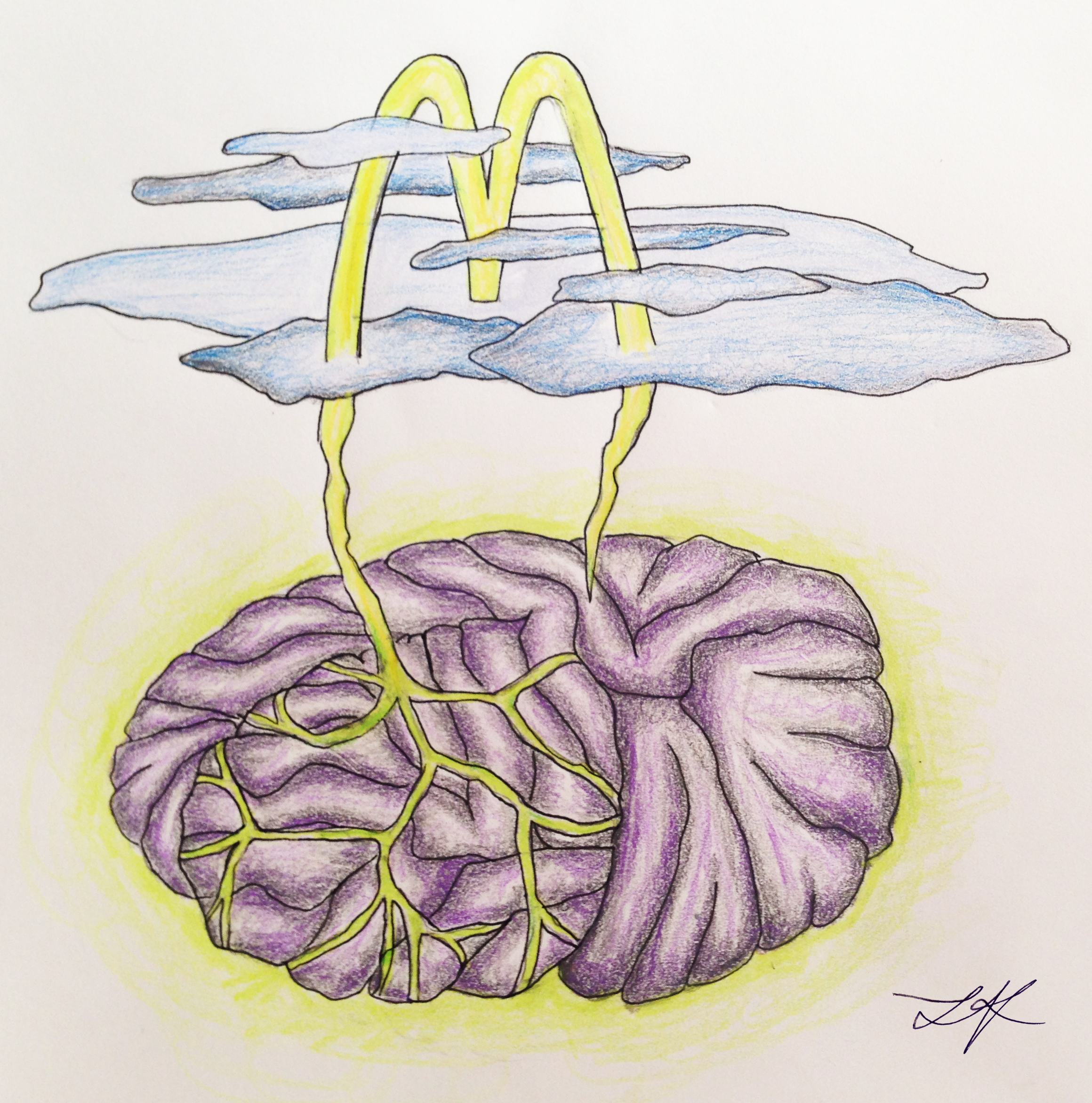 Illustration by Lisa Kaggen
Illustration by Lisa Kaggen
It has been hard to miss McDonald's trumpeting its commitment to make it easier for people to have access to healthy food choices in its restaurants. But the question remains: Is this something that can significantly improve consumer health or is it simply a stock-pumping PR tactic?
When it comes down to it, McDonald's is in the business of making money and pleasing its shareholders. Selling water and fresh salads simply won't result in profit margins like sugary soda and greasy half-meat do. Well, that's okay -- even if McDonald's does come through on its promise (seven years from now) and advocates for these healthier items, it's pretty confident that you still won't order them.
"How could they know?!" you're wondering.
Well, McDonald's has leveraged several cognitive phenomena tied to behavior and decision-making, which basically guarantee that people will not actually take advantage of these healthier options, and its profit margins will remain high -- if not soar higher.
Let's get acquainted with the two biggest players in this mind warp:
Status Quo Bias -- Studies have demonstrated that when it comes to choices -- no matter the substitute options, people tend to intuitively stick with the default option. In our brain's subconscious effort to reduce the risk of making the wrong choice and to avoid regret, it is easier to stick with what seems to be the status quo option. Therefore, though McDonald's promises to offer to substitute fries with a salad in its value meals, the likelihood that people will choose this option is extremely low. To meaningfully influence the way we eat, McDonald's would have to make salad the default value meal option -- cultivating a food environment in which the healthy choice was the easy choice!
Health Halo Effect -- if A = B and C = D, how might B = C? Welcome to the world of "vicarious goal fulfillment." Researchers have found that the mere presence of a healthy option leads us to make an ironically indulgent decision. When there is just one healthy offering on a menu, customers tend to perceive the rest of the menu as healthier -- just because gummy bears are sold in a health food store does not mean they're healthy, right? This cognitive bias not only works to keep people ordering the more profitable, highly processed food (maybe even more so than they would have originally), but also gets more people in the door of what they now perceive as the healthy and virtuous McDonald's.
So, once we combine safe default options, halos of health, our emotional eating tendencies and the simple fact that few people actually go to McDonald's for a salad, we have a comprehensively successful "healthwashing" campaign.
Unfortunately, even those of us with a Ph.D. in psychology fall for the status quo bias. Even when we know the tricks of the trade, our brains can still fall prey to the onslaught of marketing techniques.
So, what can you do to stay on top of this subconscious manipulation?
- Stay educated on the social and economic forces that dictate what we eat.
- Hold your applause for fast food giants like McDonald's -- call them out on their ineffective commitments and hold them to a higher standard.
- Ask for nutrition regulations with real teeth to them!
Don't hand over the reigns to corporate giants, stay aware and share the knowledge!
For more by Sonya Bentovich, click here.
For more on healthy living health news, click here.